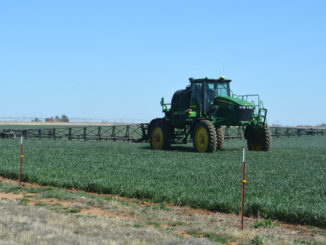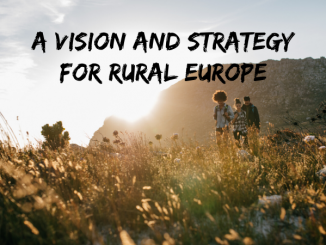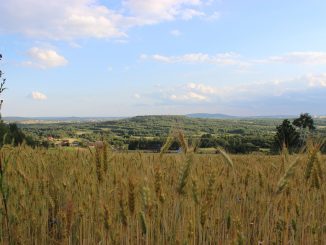Strengthen civic movements – nurture democracy, broaden solidarity, promote agro-ecology
1. The Corona pandemic changes our role in the year 2020
The scale of the challenge – shutdown of public life
It is difficult to grasp the scale of the situation we face with covid-19. People’s lives change fundamentally. So do our societies and economies. We face massive reductions: less mobility, no physical meetings, no open markets, no cultural events. We are living in isolation. How can we, how can our societies adjust to this new reality? How can we as ARC2020, as European network, research community, news provider and advocacy platform contribute to keeping civic movements alive and active around sustainable farming, food supply and transition towards better farming, food supply and ago-environmental practices?
Our immediate response – informing, understanding and learning
We have much to learn about the virus and its impact, also on our farming and food system in the immediate. We are now offering scientific, analytic, and political information on the pandemic around our core themes. We contribute to better understanding of measures taken on governmental and civic level and of mutual support of people getting organised on a local level. At the same time we will highlight the best of existing structures for cooperation, solidarity economy and agroecology. Different places and times in and around Europe and indeed beyond, have plenty to teach us how to keep the chin up.
Staying vigilant – watching EU policies and national strategies emerge
We have a genuine concern that in this crisis, many aspects of the broken agri-food system may remain, reemerge, even worsen in that the system becomes even more vulnerable and unsustainable. In the immediate term primary production and continuity of supply is important – perhaps the most important thing for now. However, many of the rules and procedures to make agri-food, environment and rural spaces more sustainable and resilient are also now inevitably weakened or ignored in the crisis. We will keep a close eye on how legislation, rules and procedures are being changed by governments and institutions during the pandemic, and for how long they remain. Bad temporary solutions can make for extremely poor long term regulations.
Spotlight on: what goes wrong and what goes right
As it stands, the current agri-food system is not fit for purpose – climate, biodiversity, pollution, rural depopulation, hunger and obesity – are all still huge problem areas. We want to make sure that no political and structural changes towards even more destructive farming and vulnerable food systems are passed in urgency below our radar. So what do political decision makers and agrifood companies do while the crisis draws attention away from what we are trying to achieve towards sustainable transition? How is the next CAP being shaped and financed? What will happen to the EU “farm to fork” strategy? Is there anything left from the European Green Deal before it has even started? And more practically: why are air conditioned supermarkets allowed open but outdoor farmers markets forced to shut?
2. Grasping the pandemic by the horns – opportunities for change
Focus on food
The pandemic will bring food supply into focus. This is an opportunity. The EU’s input dependent and export-oriented agri-food system now reveals its extraordinary vulnerability. Now that shipping is restricted, animal feed and meat export are stuck and food chains are disrupted on many levels the demands for more resilient food systems on local and regional level need further attention. Now that seasonal workers are blocked at internal EU borders, fast food outlets and restaurants are shut, who will harvest, slaughter, process food and prepare food? And how will all the micro ingredients – the inputs and processes – for hyper processed foods with dozens of ingredients be sourced with these new restrictions? If ever there was a time to highlight and promote simple, local, affordable food production, sensitive to the environment, and giving real and meaningful employment, that time is now: the complex global agri-food system may or may not survive – feeding people is essential.
Focus on farmers
Farmers have long been seen as profiteurs of subsidies and polluters. Some are indeed. The majority is not. Their community is split between conventional and organic, between large and small. We need to promote an honest dialogue within the farmer community and with the rest of society to transform farming, food and agro-environmental systems into a resilient framework of action and transition. Europe may be losing its great diversity of small scale farming systems and the emerging food solidarity systems in a much faster period that we already know. We need to highlight this risk and call for action at all levels to keep this unique structure and way of life and production in place. If the crisis teaches us to accept that we need to plan better and collectively, and that the old rules are gone, we can now encourage the development of these agro-ecological, territorial and resilient farming practices we have developed and experimented with for a long time. Time to praise and support farmers for a sustainable farming system is now.
Focus on rural renaissance
During past years, ARC2020 and its partner organisations like Forum Synergies have organised a wide range of rural dialogues the outcome of which was recently published in one of our brochures. During the pandemic, networks of rural parliaments, rural alliances and movements, also in accession and neighbor countries are in need of staying in touch with updated information on European and national support opportunities, as well as new more decentralized infrastructure job opportunities for young people, digital support for economic diversification and better urban-rural relations. ARC2020 is closely cooperating with the official ENRD network of the European Commission and shares information and suggestions with our partner networks across and beyond the EU.
3. Preparing post corona times
Gathering seeds for change
While we are still at the beginning of the pandemic in Europe the impacts of which will last for years, we foresee the even wider impacts and will prepare the steps out of the crisis. From our partner networks being closer to local solutions we draw the evidence that there are already solutions to the challenges growing from the bottom-up. ARC2020 sees its role in gathering as many success stories and good practices as available and share them from the local to the European level.
Analysing and influencing national CAP strategic plans
The process of reforming the CAP will be strongly influenced by the impacts of covid 19. It will take more time to adapt to new parameters. ARC2020 is currently working on the national strategic plans of EU member states with focus on France, Germany, Poland, Italy and Ireland. We want to make the process transparent and will enable the platforms and partners to influence the plans in their member states in the coming months and possibly years. European policy initiatives like Green Deal, Farm to fork, and long term rural vision will be put into context with the ongoing negotiations on future CAP.
Making agro-ecology knowledge available throughout Europe
There is excellent work being carried out and gathered on agro-ecology, agro-forestry and other integrative approaches to land based production and biodiversity protection activities. We wish to make this work available to a broader public and political decision makers through our network of journalists and media contacts. Research results and political conclusions are not close enough to bring about the process of genuine renewal and transformation of farming and environmental protection.
In practical terms this means that an agroecological farm, prioritizing a range of mixed seasonal horticultural crops; integrating other aspects such as some livestock and micro dairy; growing cereal and protein crops for feeding animals and humans, and being resource as regards open pollinated seed saving and on farm inputs,can offer examples for systematic restructuring of agricultural and rural facilities needed to make food systems more resilient. This is what we call a new sufficiency approach precisely what is needed now, for the towns and villages of Europe.
4. Strengthening Europe’s civic movements
Working with platforms and alliances
The corona crisis has brought central and top down approaches back into the center of governance of the disease. While this might be necessary temporarily to protect lives and limit the spreading, the remedy for the structural and political breakdown must grow from the broader society. Autocratic rulers take advantage of the situation to broaden their power and to weaken democratic and civic movements. ARC2020 is monitoring and criticizing this trend and will offer support for strengthening movements and NGOs to join forces on a European level as a response to new nationalism and egoism. In doing this we see the national and European platforms, IPES food, Pour une autre PAC, Agrarbündnis and many others as our key partners.
Participative research and technology
There is valuable participative research and technology development going on throughout Europe with EU funding such as European Innovation Partnership EIP, DESIRA on rural digitalisation or Social Innovation in Marginalised Rural Areas (SIMRA). Furthermore IDDRI, Agroecology Europe and many other research communities have gathered evidence and guidance to implement transition towards new resilient practices. ARC2020 will help to make this rich material and knowledge available across Europe so that it becomes as people-centred easy to apply as possible. With this approach, plans are developed and shared in Europe and beyond, and can be constructed locally.
ARC2020’s recent research, articles, twitter work and publications
Coping with Covid19 – the Open Food Network and the New Digital Order(s)
AgtechTakeback – Technical Sovereignty and L’Atelier Paysan’s Tooled up French Farmers
AgtechTakeback | Digital Consolidation – Entrenching Agrichemical Companies & Industrial Ag?





